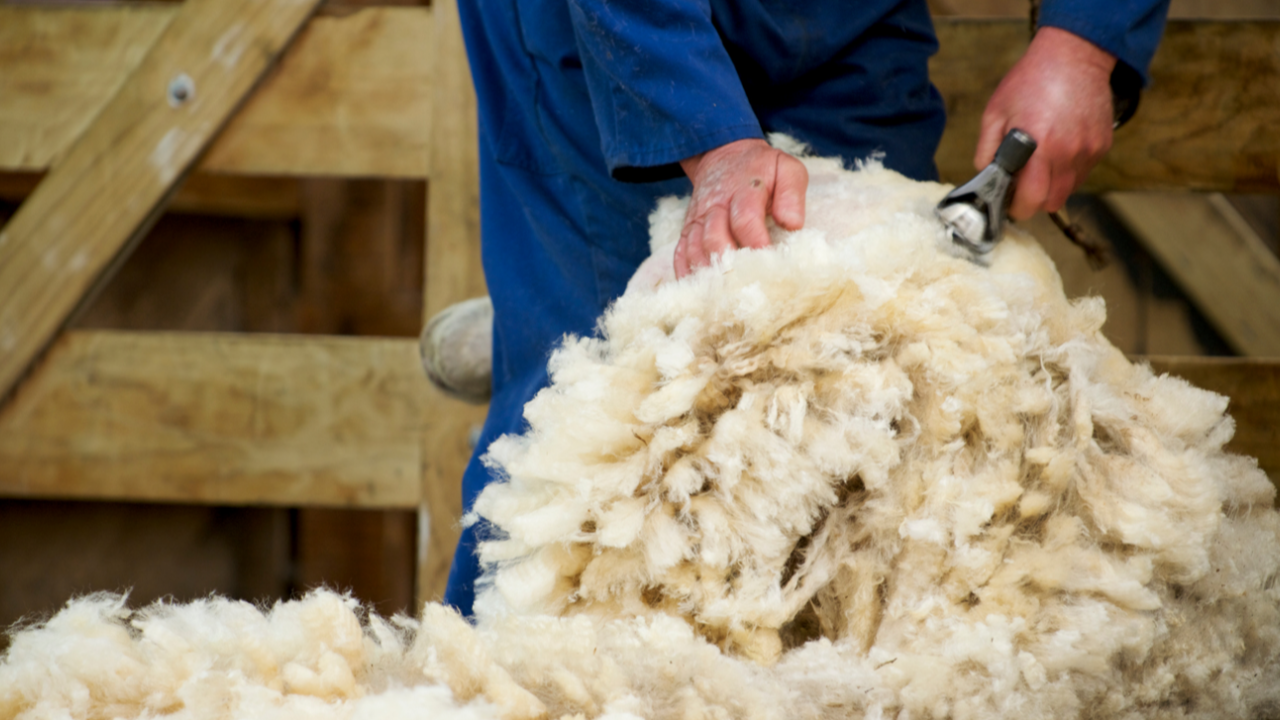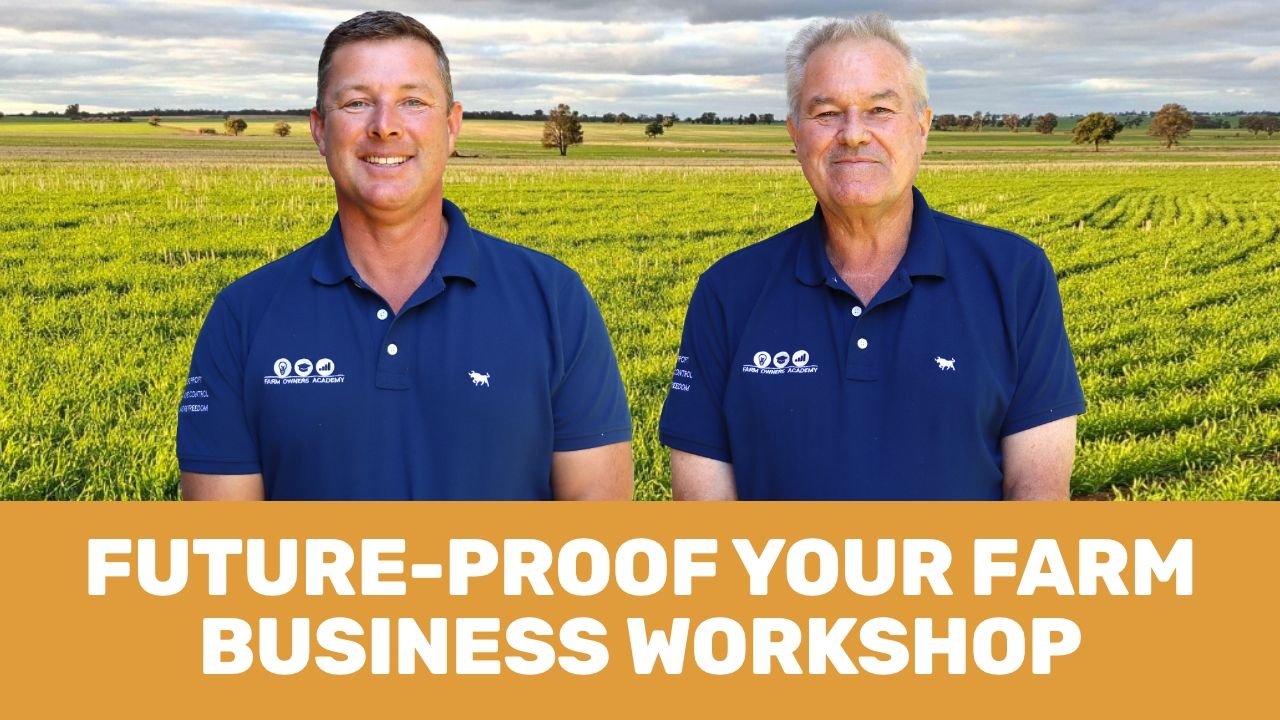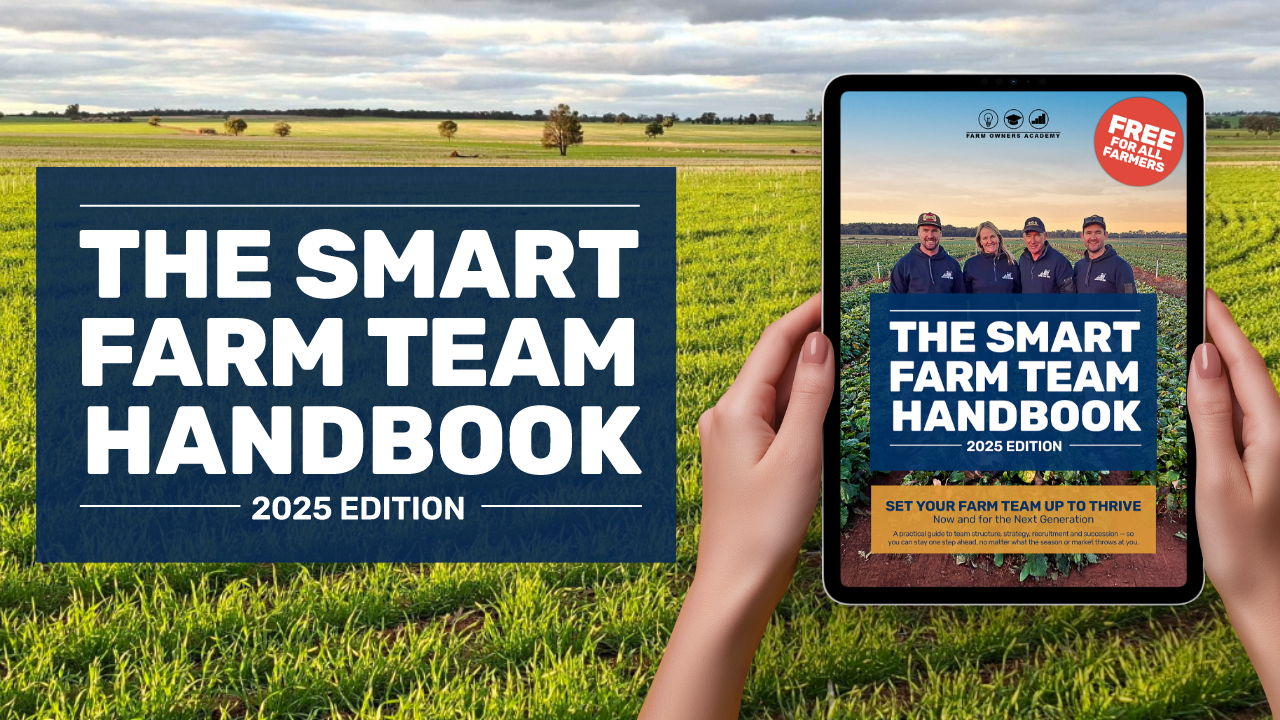Collaborative Farming & All Its Advantages
Mar 17, 2023
Our Managing Director Jeremy “Hutch” Hutchings recently spoke with and gained insight on this topic with Founder and Managing Director of Riverland Lending Services and Collaborative Farming Australia, Jeff McDonald. Jeff is also the Chair of many highly successful collaborative farming ventures across Australia, including Bulla Burra, Sherwood Estate and River Wine Collaboratives.
The challenging but central message from Jeff’s experience is that farm owners must become ‘professional’ if their farm is going to survive. As Jeff explores; “good business governance is critical to collaborative and family farming equally. If you are not full throttle on this, you are already on your way out of farming”.
As land prices and interest rates continue to rise, Jeff believes that a lateral mindset shift is necessary for farmers in considering how best to expand their farm. Collaborative farming can be a really effective and sustainable means of expansion and lowering risk that, when properly planned and executed, can make a significant positive difference to profits, lifestyle and financial freedom.
What does “Collaborative Farming” mean?
Fifteen years ago, it struck Jeff that most farming families were being held back in their business because they were held back by their own limitations of land, machinery and resources. He saw the opportunity for many farmers to make greater profits and expand their farms, if they considered working a little differently through collaborative farming.
Collaborative farming involves multiple families coming together to share land assets, resources and operations, and usually this arises out of a need or desire, such as health issues, ageing with no succession plan, or something quite simple such as a farmer preferring to work with others. There are many different variations in how collaborative farming can work, however most important is for the families involved to share the same values and goals. Best of all is when two farming families come together and realise their skills and abilities are like ‘yin and yang’, because it allows a much wider overall skill set to benefit both businesses and broadens the scope for profit for everyone involved.
How it can help your farming operation
Many farmers already partake in a form of collaborative farming, such as share farming or leasing, however these are usually seen as single entities and are often reactionary in nature, arising from a land or resourcing opportunity. Conversely, in a collaborative venture the business model and plan must come first, with the land, resources and people available being structured appropriately around the central aim of the business plan.
As we discuss often in our podcasts, this need demonstrates again the requirement for farmers, increasingly, to educate themselves on good business practice, on top of being skilled technical operators. The greatest challenge involved in a collaborative venture is the need to change the way you think about business decisions, and change is difficult for everyone- that’s human nature!
Real world examples of applying Collaborative Farming principles to your operation
Everyone Receives a Wage
In a successful collaborative venture, every person is paid a wage from the business, from which they must pay their personal expenses, and may also receive leasing payments in which business debt must be paid from. Therefore, any new business or personal purchase has to be deemed acceptable by all directors (owners), before it can go ahead.
For example, buying a new car may suddenly become a personal, rather than business expense. This can be very challenging when you have never previously had to be accountable for your spending or had to justify what you spend money on. However, it is necessary in order for you to identify the actual profitability (or not) of your property.
Paying yourself a wage and ensuring all expenses are paid from that allows you to correctly identify exactly what the bottom line of your business is, and if it can realistically continue. These numbers can be challenging to see, but like any business, you have to know exactly how your farm is performing if you are to improve and expand.
Formal Separation of Employment for every worker
On top of everyone receiving a wage within a collaborative venture, another important feature for success is ensuring a formal separation of employment for every worker, where each person has a set job description and are accordingly paid an appropriate wage. This ensures that individuals’ skills are being used to their best advantage and every employee is able to make decisions in a structured environment.
Following from this, strong succession planning can also occur as family members can be brought in as employees with defined roles, and all possible events are planned for, including ill health, death or directors/employees choosing to leave. When planned in advance, such inevitable change does not have to cause the long term financial, physical and emotional stress that can arise on family farms operating independently with weak business, succession and operational structures.
Upskilling in relevant HR & WHS issues
Finally, in collaborative farming, as in independent farming, the need for farmers to upskill and educate themselves on relevant HR and WHS issues is absolutely crucial. No one is safe anymore from these requirements and banks won’t consider lending money without proof, as demonstrated in a written business plan, that your farm is compliant with these frameworks.
Rather than viewing this as a time-wasting ‘ticking box’ exercise, try to see it as a positive step in moving your business forward and raising the bar for farming in general. As Jeff said, farmers are now required to act and plan professionally, and this is one way of doing so.
Educating yourself is so important in achieving this, however if you are feeling overwhelmed and underskilled by this prospect, Jeff suggests hiring a ‘contract CEO’ to help make it happen. Hiring a consultant to help with bookkeeping, HR, compliance and growth can be very helpful in setting you up for success and providing some of the knowledge required for you to continue later on as a director for your business. It’s also an excellent opportunity for you to further your own professional development by treating the appointment as a training opportunity for yourself and your leadership team.
It might be challenging, but it’s worth the change
Regardless of whether you find this ‘professionalisation’ in farming challenging or not, it is important that you consider the ‘why’ in how you feel. Are you actually resistant to change? Does it feel like too great a risk, or not worth the money? Do you lack the confidence in yourself to be able to ‘think like a CEO’?
These are all understandable and surprisingly common reactions, however in business we get the results we deserve, and we have to be open to learning and changing if we want to continue farming. If we don’t become professional, our farms, both individually and collectively, will not survive.
If you would like more information on collaborative farming or to simply have a chat, please get in touch with us on 0447 184 167, or email [email protected] at any time. We’d also be more than happy to help you get in touch with Jeff McDonald directly for a detailed discussion on your own needs.
By Jeremy “Hutch” Hutchings, Managing Director of Farm Owners Academy. You can listen to Hutch discuss collaborative farming and all its advantages with Jeff from Riverland Lending Services and Collaborative Farming Australia on Episode 85 of The Profitable Farmer podcast.








